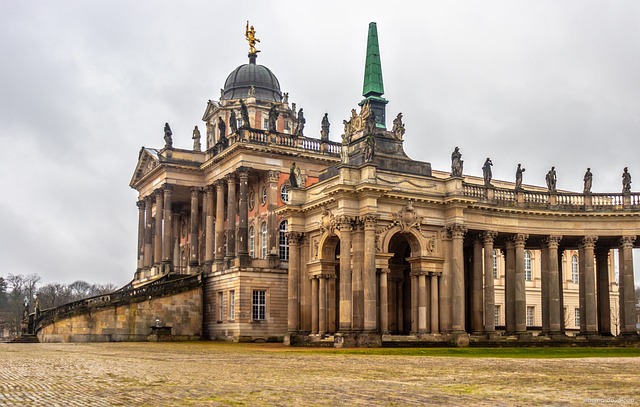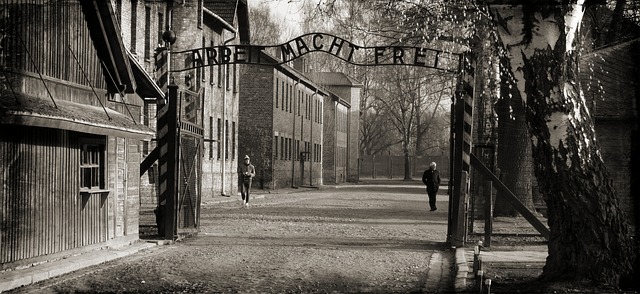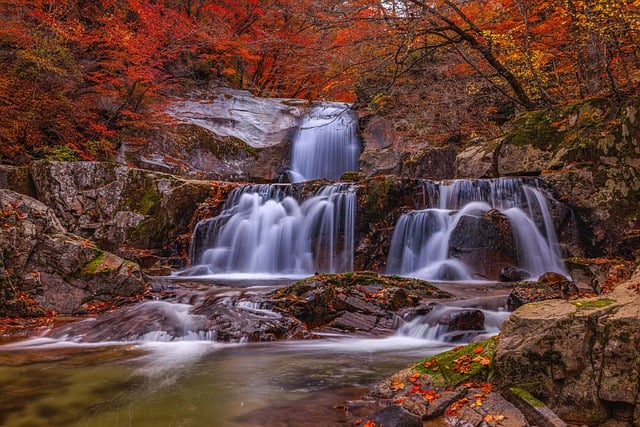The Siuslaw River's significance during Prohibition transformed Florence, acting as a clandestine lifeline for smugglers and a vital resource for local economies. Its winding paths facilitated black market trade while also providing a peaceful retreat for locals. Today, exploring Florence reveals historical remnants of speakeasies and river-based tourism that highlight the river's enduring impact on the community's resilience.
“Explore Florence’s unique historical blend as we uncover its role during the Prohibition era. This period saw the Siuslaw River, a local lifeline, become a clandestine conduit for bootleggers. Discover how this scenic waterway facilitated underground operations, shaping the town’s resilience. Delve into the hidden gems of Florence’s past, from speakeasies that thrived to innovative business strategies that adapted to the times. Unravel the impact of Prohibition on this coastal gem, where survival and secrecy went hand in hand.”
- Siuslaw River: Lifeline During Prohibition
- Florence's Hidden Historical Gems
- The Rise of Speakeasies and Their Impact
- Local Business Adaptation Strategies
Siuslaw River: Lifeline During Prohibition

During the Prohibition era, the Siuslaw River became more than just a geographical feature; it transformed into a vital lifeline for the region. With the production and sale of alcohol being illegal, the river served as a clandestine route for smugglers transporting illicit spirits from Oregon’s coast to nearby cities like Florence. The Siuslaw’s winding paths and hidden coves provided perfect cover for these underground operations, making it a crucial element in sustaining the black market trade.
The river’s significance extended beyond just facilitating illegal activities; it also played a critical role in supporting the local economy. Even though Prohibition was meant to curb alcohol consumption, many residents in Florence and surrounding areas relied on the river for their livelihood. From fishing and logging to transportation, the Siuslaw River’s resources were essential for navigating the economic challenges of the time, showcasing its profound impact on the community’s resilience and adaptability.
Florence's Hidden Historical Gems

Florence, nestled along the scenic Siuslaw River, boasts a rich history that extends far beyond its seemingly tranquil setting. Amidst the era of Prohibition, this charming town became a hidden gem for those seeking a quieter life and a chance to escape the spotlight. The river, with its serene beauty and historical significance, played a pivotal role in shaping Florence’s unique character during these trying times. It served as more than just a geographical feature; it was a lifeline, facilitating clandestine activities while also offering a peaceful retreat for locals tired of the hustle and bustle of the outside world.
Exploring Florence today reveals a tapestry of historical remnants, many of which are connected to this captivating era. The old saloons and speakeasies that once thrived in secret now stand as silent witnesses to the past, their walls whispering tales of resilience and rebellion. Meanwhile, the Siuslaw River continues to captivate visitors and residents alike, inviting them to appreciate the town’s hidden history while also enjoying its vibrant present.
The Rise of Speakeasies and Their Impact

During the Prohibition era, as alcohol sales were banned, speakeasies emerged as clandestine establishments where patrons could legally purchase and consume alcoholic beverages. In Florence, located along the picturesque Siuslaw River, these hidden bars played a significant role in shaping the city’s underground social scene. The riverside setting, with its charming atmosphere and natural beauty, created an ideal environment for speakeasies to thrive. These establishments not only catered to locals’ desires for forbidden spirits but also attracted visitors seeking a taste of the illicit during their travels along the river.
The impact of speakeasies extended beyond mere hospitality. They became focal points for community gatherings, fostering a sense of camaraderie and rebellion against the law. The Siuslaw River, with its significance to Florence’s identity, served as a backdrop for these clandestine meetings, further emphasizing the era’s cultural and social dynamics. Speakeasies contributed to a vibrant nightlife, enhancing the city’s allure while simultaneously challenging the authority of Prohibition.
Local Business Adaptation Strategies

During the Prohibition era, when the sale and transportation of alcohol were strictly regulated or prohibited, Florence, nestled along the scenic Siuslaw River, witnessed a unique transformation in its local business landscape. Many traditional establishments had to adapt swiftly to survive and thrive amidst these unprecedented changes. The river, which had long been a lifeline for the city’s economy, became even more significant as illegal speakeasies and bootleggers took advantage of its secluded coves and hidden beaches.
Local businesses embraced innovative strategies to stay afloat. Some turned their establishments into disguised speakeasies, offering “legal” beverages under the guise of restaurants or coffee shops. Others capitalised on the increased foot traffic by providing legal entertainment options like live music venues and dance halls. The Siuslaw River’s role in facilitating bootlegging also led to a surge in river-related tourism, with boat tours and fishing expeditions becoming popular among locals and visitors alike, further diversifying Florence’s economic tapestry.
